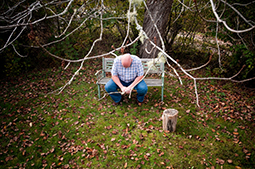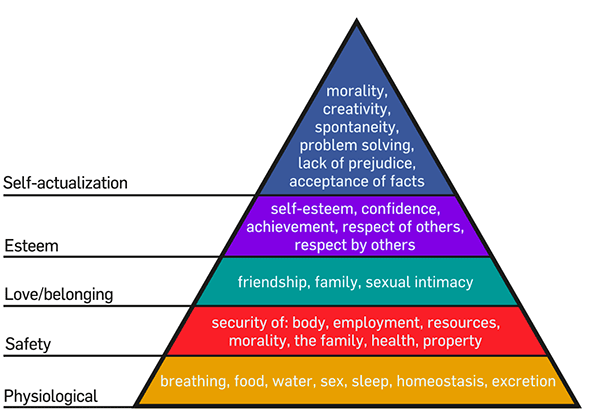When you experience the loss of a loved one, there is an alone time that is different. The house is quieter. Just knowing that your loved one was there, even if in another room, was reassuring. It helped to define you and to let you feel that you were not alone. Loneliness is often called the “greatest penalty of widowhood.”* It’s the…
Today, on the anniversary of 9/11, many people are writing about the meaning, significance and even personal memories of that awful day.
There is an aspect of the event, though, that is particularly meaningful to those associated with Hope Connection — group leaders, current and past members alike.
That aspect concerns the process of moving beyond grief. Unlike many people who experience the loss of a loved one as a largely individual event, there is a group of people mainly concentrated in the greater New York area who share a communal loss. People have neighbors, friends, co-workers who have shared a similar loss at the same time for the same reason.
Gail Sheehy recognized the unique nature of this shared loss, and has explored its nuances in a new book called Middletown, America.
A note from HOPE Connection: We received the article below shortly after the news of Robin Williams’ death. The author’s husband committed suicide, and she posted these heartfelt words on her Facebook page. It is a truly powerful message. She has graciously allowed us to reprint her post in the hope that lives may not only be touched, but saved. – Dr. Jo…
Everyone goes through a natural grieving process when a death occurs. We each behave and express feelings according to the way we’ve been taught and as modeled by our society, our culture, our family, our peers and other influences. A belief system is created that affects the way that we perceive life, death and grief.
Although men and women both feel pain and grieve when they suffer a loss, the way they deal with grief is where the differences in their grieving become apparent. The differences we see in “his” and “her” grief responses are due to our different styles of coping with pain and loss.
There are many factors that cause these differences in coping… and most often we were carefully “taught.”
From childhood, we are taught different gender roles. Little girls are taught and encouraged to share feelings, express needs and receive support from others. This support system is acquired over a lifetime.
Grief is a natural process that has similar stages and phases for everyone but it is also unique to each individual. In the beginning, it may feel like the pain is unbearable. Just like a cut on your skin that heals and eventually scabs over and leaves a scar, there is an internal healing that happens with grieving. It, too, will be…
When you suffer the death of a loved one, you are thrown into a state of emergency in your body, mind and soul.
Brain imaging studies have shown that when an individual experiences a significant loss, changes occur along a broad network of neurons. The ancient survival mechanism of the fight or flight response is automatically triggered in your brain chemistry. Even if not consciously aware, at a deep level we fear for our survival. There is incredible amount of tension held in the body that is stressful and takes a huge toll emotionally, mentally and physically. Grievers often
By Sue Rowen, M.A., MFT
In grief, individuals often have a feeling of generalized fear and being unable to control the body symptoms that go along with feelings of anxiety and panic. If we look at Abraham Maslow’s “Hierarchy of Needs Theory,” we see some of the basis for this anxiety.
It becomes apparent that when we experience the death of a loved one, we are thrown to the bottom two levels of the pyramid. We are confronted with the fear that we may no longer feel safe and may not be able to take care of ourselves and our basic needs.
One’s personal world has changed forever. When we are grieving the death of a loved one we feel stripped of the resources that, in the past, have been there to support us through stressful times.
- “Do I have enough money to support myself?
- “Will I be okay alone?”
- “How am I going to drive at night by myself?”
- “What if I get sick? Who will help me?”
Our loved one, a major part of our support system and someone we have depended on for such support, is no longer present for us.
What is grief? Grief is a journey. It is painful. It is difficult and challenging. It feels never-ending. It does have a natural rhythm that will occur and you will heal. Be gentle with yourself and trust your natural, innate process. What are resources? Your resources are all of the things that help you through the journey of grief: Work A grief…
If your spouse has died, your whole world has most likely been turned upside down… out of balance. Everything seemed to change in your life… especially you. Your belief system, physical routines such as sleep, energy and eating, emotional stability, relationships… even your environment has taken on a different meaning. That feeling of safety, comfort and familiarity about your life no longer seems to exist.
Grieving is a difficult journey, as you already know. In the process you and your life will change. Learning to re-create a sense of
There’s no place like “HOPE” for the Holidays.
The first time a loved one is absent for the holidays a griever may conclude that all of the progress and healing that has taken place has vanished.
Starting with Thanksgiving and through New Year’s are the days on which mourners are reminded of loss by the painful absence of their loved one. Feelings of longing and sadness are especially acute this time of year.
In our culture there is a strong expectation of a “Norman Rockwell” holiday with loved ones harmoniously gathered around the hearth. This expectation burdens many individuals, not just those who are mourning.
We are bombarded with


